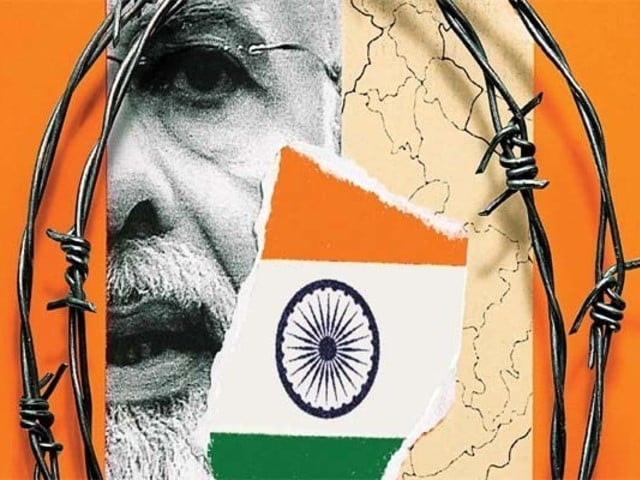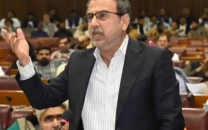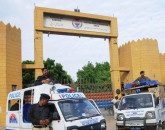No space for dissenting voices in Modi’s India
After being stripped of his Overseas Citizenship of India, the account of a prominent critic gets banned on X in India

In its ongoing campaign against dissenting voices, the Indian government has once again launched an assault on one of its prominent critics. Ashok Swain, a Sweden-based academic, finds himself not only stripped of his Overseas Citizenship of India but also silenced from communicating with audiences in India following the suspension of his new account on X, formerly known as Twitter.
The recent ban on Professor Swain’s account on X adds another layer to his ongoing struggle against attempts to stifle his criticism of Prime Minister Narendra Modi and his Bharatiya Janata Party (BJP). This latest blow comes two months after his legacy account, with over half a million followers on the microblogging platform, was hacked.
Swain, a veteran professor at the Department of Peace and Conflict at Sweden’s Uppsala University for over thirty years, has encountered numerous obstacles imposed by the Indian government. Since 2020, he has been prohibited from setting foot in India, a restriction that has tragically kept him from seeing his ailing mother for over four years. In an interview with the Express Tribune, he shared the profound emotional toll of this separation: “I am the first Indian academic to face such restrictions. Perhaps the government is making an example out of me for others to see before they criticize the Modi government. On a personal level, it has taken a huge toll. I have not been able to visit my mother in Odisha.”
This is the price one pays for standing against a bigoted regime, for standing up for what is right, for questioning an authoritarian leader.
Regarding the suspension of his Indian citizenship and subsequent challenges, Swain pointed out the government’s failure to convince the Delhi High Court of its decision led to the court’s suspension of the Modi administration’s actions. However, just two weeks after this court’s ruling in Swain’s favour, the BJP government, once again, suspended his citizenship, accusing him of being a ‘threat to India’s national security, unity, and integrity’. Despite requests for evidence to support these accusations, the Indian government cited security concerns and refused access to Swain’s lawyers, insisting that any evidence be presented directly to the judge.
“The Modi regime has been using security agencies to construct a narrative that supports their political agenda against me. My understanding is that they don't have anything against me or else it would have been presented before an open court and I would have had a fair chance to defend my case,” said Swain.
Under Modi and the governing Hindu nationalist BJP, freedom of speech has steadily deteriorated. Since 2021, reports indicate a severe erosion of academic freedom in India amid a sustained crackdown on dissent under the leadership of Prime Minister Modi and his hardline government. According to the 2021 Free to Think report by Scholars at Risk (SAR), attacks on higher education communities in India have surged, particularly during Modi’s second term. The report highlights how Indian authorities have utilized anti-terrorism laws to target over a dozen scholars, seen as retaliation for expressing views critical of the BJP leader and his administration. This crackdown intensified during 2019-20 and peaked during protests against the controversial Citizenship Amendment Act.
Swain’s case took a turn around the same time. His outspoken criticism of the Modi administration’s policies toward India’s minorities, its human rights record, and other authoritarian tendencies had not only drawn the ire of the government in New Delhi but also from the millions who follow the cult of the Indian leader. “Since the onset of the Modi government, I’ve been calling him out on his policies toward India’s Muslims, Dalits and other minorities. The prime minister has very little tolerance for criticism or dissent and he goes after anyone he can for that,” said Swain.
Hacking operation
While Swain is no stranger to constant surveillance, the hacking of his social media accounts and digital devices in February this year came as a shock. The Uppsala University professor disclosed that his laptop and mobile phone were compromised simultaneously with his social media platforms. When asked about the status of his social media accounts, Swain confirmed he had regained access to all except the one on X. “Despite numerous emails to X, formerly Twitter, my complaints appear to be falling on deaf ears,” expressed a dismayed Swain.
On a personal level, the ban on my entry into India has been deeply distressing. It has prevented me from visiting my ailing mother in Odisha.
In 2021, Twitter and the Indian government clashed over compliance with the newly rolled out IT rules. India, with over 30 million users, stands as Twitter’s or X’s third-largest market after the US and Japan and with limited tolerance for free speech in the country, its users are becoming a challenge for the platform. The Modi government’s legislation has compelled the social media giant to adhere to strict regulations. Under the Intermediary Guidelines, all major social media platforms and tech companies are required to promptly remove content within 36 hours of receiving administrative or legal orders. Failure to comply can result in criminal liability for their employees in India. Swain’s new account, created in February after his legacy handle was hacked, may have fallen victim to this rule, leading to its blockage in India. However, despite reaching out to X, Swain received no justification for the action.
According to Swain, his legacy account was hacked through a sophisticated operation likely orchestrated by Indian security agencies. “My account was compromised when I was actively tweeting in support of Palestinians and against the conflict in Gaza. The timing suggests that the Indian agency aimed to create an illusion of involvement by a Middle Eastern entity,” he speculated. Interestingly, following Swain’s loss of access, his legacy account began posting pro-Pakistan content before shifting to support the Modi government.
Decades of surveillance
The Sweden-based academic has endured surveillance by the Indian government for over three decades. As a young scholar at Jawaharlal Nehru University (JNU), Swain found himself targeted simply for meeting an official from the High Commission of Pakistan, who, like many others, was attending an event at JNU—a bastion for left-leaning and secular scholars and academics at the time. Little did Swain realize that this casual encounter would lead to his placement on the watchlist of Indian security agencies.
Fast-forward to 2024, Swain now feels the toll deeply. Despite his mother residing in a state not governed by Hindu nationalists or the BJP, he remains unable to return to India due to the ban. When questioned about the greatest impact of this ongoing ordeal, he solemnly replied: “This is the price one pays for standing against a bigoted regime, for standing up for what is right, for questioning an authoritarian leader.”
The Modi regime has been using security agencies to construct a narrative that supports their political agenda against me
Familiar pattern
Criticism of Narendra Modi, who appears to be aiming for a third term as India’s Prime Minister, finds little space or acceptance within the country. In 2019, scholar and Gandhi biographer Ramachandra Guha was among hundreds detained for protesting a controversial law that grants citizenship to South Asians of any faith except Islam. The law sparked unrest across Indian cities. The right-wing BJP administration responded by implementing internet shutdowns, barricading roads, and arresting numerous protesters, revealing a government increasingly intolerant of dissent.
More recently, UK-based professor, Nitasha Kaul, was denied entry into India and forcibly placed on a flight back to London. The Indian-origin academic at Westminster University described the episode as ‘harrowing’ and urged Indians to move beyond ‘hate’. According to media reports, Kaul's entry was barred by the Karnataka government due to her views on democratic and constitutional values.
For exposing the atrocities committed by Indian forces in occupied Kashmir and violations of human rights, international advocacy groups have faced similar targeted campaigns in India. In 2019, London-based advocacy group Amnesty International faced backlash from the Modi government after condemning human rights violations in the country. In response, various central agencies raided the group’s local offices to investigate alleged violations of foreign funding rules.
Last year, after the BBC aired a documentary questioning the Indian prime minister's leadership during the 2002 Gujarat riots, which resulted in the deaths of approximately 1,000 people, mostly Muslims, the high court in Delhi summoned the UK-based broadcaster to appear in a defamation case. These summons followed predictable raids by Indian tax officials on BBC offices in Delhi and Mumbai.
According to an investigation conducted jointly by Amnesty International and The Washington Post last year, India’s government has also employed the intrusive Pegasus spyware to target high-profile journalists. Donncha O Cearbhaill, the head of Amnesty’s Security Lab, characterized the Modi administration's actions as intrusive, warning in an Al Jazeera report that journalists in India face the constant threat of unlawful surveillance simply for carrying out their duties. This surveillance comes alongside other tools of repression, including imprisonment under draconian laws, smear campaigns, harassment, and intimidation.
In 2023, the BJP leader even went after his political opponents. India’s top opposition leader and fierce critic of Prime Minister Modi, Rahul Gandhi, was expelled from Parliament after a court convicted him of defamation and sentenced him to two years in prison for mocking Modi's surname in an election speech. The expulsion of Gandhi, the great-grandson of India’s first prime minister, Nehru, was seen as an assault against democracy and free speech by a ruling Hindu Nationalist government aiming to suppress all forms of dissent.


















COMMENTS
Comments are moderated and generally will be posted if they are on-topic and not abusive.
For more information, please see our Comments FAQ